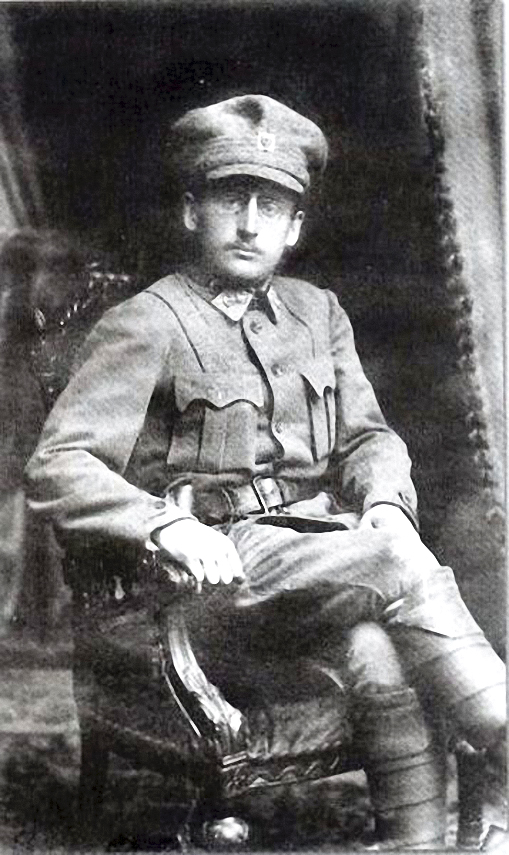Іvan Vyslotskyi
5/28/2025

Ivan Vyslotskyi was born on July 24, 1893, into the family of a clergyman in the village of Leliukhiv, Novyi Sanch district, Lemkivshchyna. At the age of 18, he volunteered to join the Austro-Hungarian Army, later graduated from the Intelligence School in Bregen, and then performed certain tasks at the corps headquarters based in Przemysl. During the First World War, he was taken prisoner of war by the russians and was brought to Chita and later to Ufa. In 1917, he came to Kyiv, where he joined the Sich Riflemen Corps as a commander of a chota and later was promoted to the rank of Khorunzhyi. He took part in guarding Head of the Central Rada Mykhailo Hrushevskyi.
From 1919, he served in the Intelligence Department of the Ukrainian Galician Army. At that time, the work of the intelligence service was divided into two main periods: the Galician period, during which the war with the Poles continued, and the Dnipro period, when the fighting with the red and Volunteer armies was ongoing. On the instructions of the leadership of the Intelligence Department, I. Vyslotskyi conducted several raids into the rear of the bolshevik army and obtained important information. During one of the missions, the detachment he led managed to blow up a railroad bridge south of Korosten while a bolshevik train with weapons and personnel was passing through it.
In the spring of 1920, the UGA and its special services actually ceased regular activities. At this, most army officers and riflemen, intelligence and counterintelligence officers, including I. Vyslotskyi, went underground, joined the ranks of insurgent and partisan formations and national liberation movements, and continued the struggle for the independence and unity of the Ukrainian state in different conditions.
In 1936-1939, I. Vyslotskyi worked in a Lviv publishing house. Before the arrival of the red army in September 1939, he and his family had left for his native Lemkivshchyna, and in the autumn of 1941 settled in Sambir, where he was engaged in publishing new school textbooks devoid of communist stereotypes. In 1944, he and his family found themselves in a displaced persons camp in Germany, from where they left for Paraguay in 1948. In his last years overseas, he taught children of immigrants to read and write Ukrainian. His memoirs tell about political and military intelligence during the existence of the Ukrainian Army in 1917-1919.
He passed away in Argentina in 1969.
